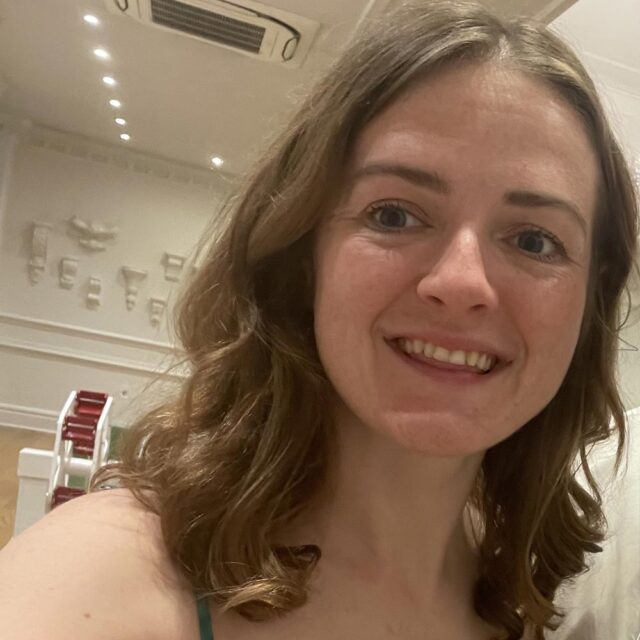Emma Jones
MA Education (Special Educational Needs)

I was given more responsibility in supporting children in the Early Years who were on a pathway towards a diagnosis or further support in their education. This inspired me to apply for my masters as I wanted to know more and be the best I can be to support those who need it.
Please tell us a little bit about yourself
I am currently teaching at a specialist setting for those diagnosed with ASC. Prior to this I have worked in a primary school with most of my experience within Early Years. I completed my Early Years Education (with QTS) degree in 2015 with Edge Hill University.
Why were you interested in an MA?
I’ve considered studying a masters for a while and never really known what to pursue. Since travelling and working with adults in a community setting, I found a real interest in special educational needs. Once I returned to England, I was given more responsibility in supporting children in the Early Years who were on a pathway towards a diagnosis or further support in their education. This inspired me to apply for my masters as I wanted to know more and be the best I can be to support those who need it.
Why did you choose to study online at Edge Hill University?
I’ve previously studied at Edge Hill so I knew the support I would receive if I returned. I liked the idea of being based nearby that if I needed to go and use the facilities that this was still an option. The online factor works well with my role as a class teacher as it means I do not have to do a long commute after a busy day.
What are the top 3 skills your MA course is supporting you to develop?
1.Critical thinking – I tend to look at things beyond their face value now. I can look at the reading we are doing and decisions within my school and think more deeply about them.
2.Being able to make connections – It has been interesting to see the different connections that I wouldn’t have normally made.
3.Being an academic reader – I feel like my appreciation for academic writing is much more apparent in my masters. I find myself reading an article and thinking ‘I want to know more about this’ and scouring the reference list to find out more. It feels good to read something and really grasp what it’s talking about.
What insights are you gaining from your current studies and how is this supported by your course tutors?
I think the most interesting insight for me is recognising the role of policy. Before being a masters student, it was just a piece of paper that was required to do my job. Through the study and questioning by my tutor, I can see the many layers that policy has and who/what has influenced it.
What are you most enjoying about your MA studies, and what are the challenges, and how have you overcome these?
I’m really enjoying having the discussions about our topics with the tutors, bringing into these my own experiences and hearing the ideas of others alongside it. The challenge has been getting back into academic writing after so long off and the step up in expectation. I think reading through my feedback has has allowed me to implement changes into each assignment and see where I can make my work better.
How has the degree supported you in balancing studying and working/working in school?
I like the organisation of the modules – you get your reading list for the upcoming weeks so you can plan out your readings, post and pre session tasks are discussed and time within sessions is given up to discuss assignments.
What’s the best thing about Edge Hill University to you?
How supportive the tutors are. If you are struggling with a concept or an assignment, they provide lots of help and guidance.
How have/will your MA studies support your career progression?
I came into this masters not really knowing where I want to take my career but since joining I am interesting in pursuing work in SEN policy or even studying further.
What advice would you give to someone considering studying the MA at Edge Hill University?
If it’s something you’ve been thinking about, get in touch with the university and ask as many questions as you can. It’ll give you an idea of how they will support you.